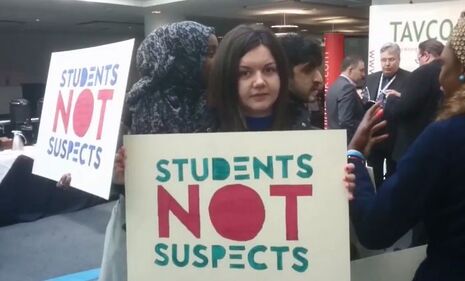Prevent has no place in Cambridge
As the government introduces the new ‘Prevent Duty’ for universities, Easa Saad warns it will make life harder for Muslim students

Cambridge students may have recently received an email from colleges about needing a ‘Prevent approval’ before booking external speakers, but many do not know what ‘Prevent’ is.
Under the Counter-Terrorism and Security Act 2015, the ‘Prevent Duty’ was placed on higher education institutions. This was an extension of ‘Prevent’, the government’s controversial counter-terrorism programme, which, according to critics, served to “stigmatise” the Muslim community. In 2011, then-Home Secretary Theresa May criticised universities for being “complacent” in tackling extremism.
Universities will have to fulfil the requirement to report “vulnerable” students, while having stricter guidelines on speakers considered “radical” – plans that the Joint Committee on Human Rights have said would “stifle academic freedom”.
The legislation attempts to extend the scope of laws limiting speech to cover the expression of opinions which contradict the seldom-defined ‘British values’, out of concern over ‘non-violent’ forms of extremism which can serve as a basis for ‘radicalisation’. But is there any evidence that regulation of university speakers is a solution to this issue?
The University of Cambridge found no link between universities and radicalisation, a conclusion echoed by the Chief Executive of Universities UK in 2011. Indeed, academic freedom is one of the best means for tackling extremism. Where do we draw the line as to which views are unacceptable? Segregation of men and women at events on university campuses has been a big issue over the last few years, with the consensus being that the practice is in opposition to those ‘British values’ and an insult to gender equality. But is it helpful to equate conservative religious or cultural practices with ‘non-violent extremism’?
By criminalising these views, we are telling a large group of people that they may not be heard. The email received by students was about external speakers, but how long before student’s views – particularly Muslims – are scrutinised? The University has a responsibility to foster a trusting environment, where dialogue and debate trump stigmatisation
 Comment / Anti-trans societies won’t make women safer14 November 2025
Comment / Anti-trans societies won’t make women safer14 November 2025 Features / Beyond the Pitt Club: The Cambridge secret societies you have never heard of16 November 2025
Features / Beyond the Pitt Club: The Cambridge secret societies you have never heard of16 November 2025 News / Controversial women’s society receives over £13,000 in donations14 November 2025
News / Controversial women’s society receives over £13,000 in donations14 November 2025 Fashion / You smell really boring 13 November 2025
Fashion / You smell really boring 13 November 2025 News / A matter of loaf and death17 November 2025
News / A matter of loaf and death17 November 2025








